
There’s just something about pergolas. You see them in gardens, parks, or outdoor spaces constructed from vertical posts or columns supporting crossbeams and often an open lattice roof. You’re considering adding one to your backyard to provide shade, define outdoor spaces, and add architectural interest, but you’d like to do more research before committing.
Let’s tackle a few of the most common questions we hear from customers about these versatile and elegant structures:
- How well do pergolas block out the sun?
Depending on the design and spacing of the roof beams, pergolas offer partial shade. While they don’t completely block out the sun like a solid roof, they provide comfortable shade for outdoor activities.
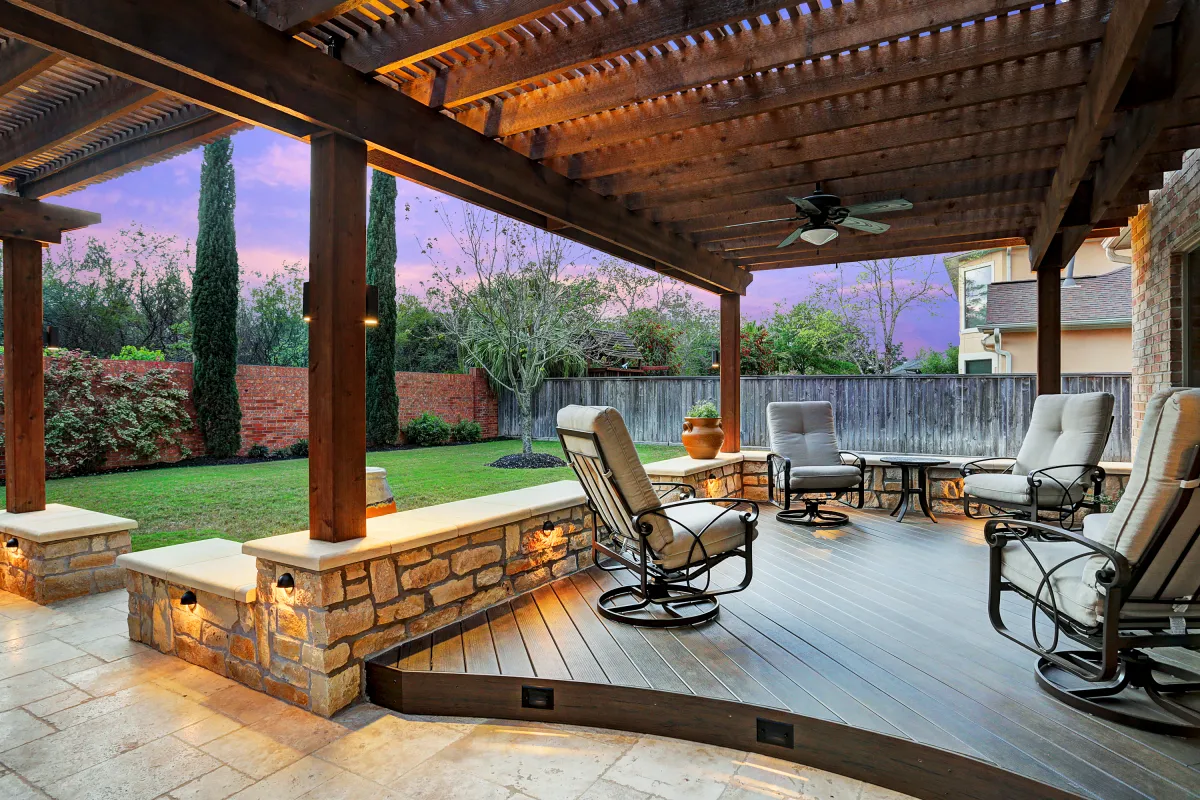
2. Is it cooler under a pergola?
Yes, it can be cooler under a pergola than directly exposure to the sun. The open design allows air to circulate freely, creating a pleasant breeze and reducing the feeling of heat.
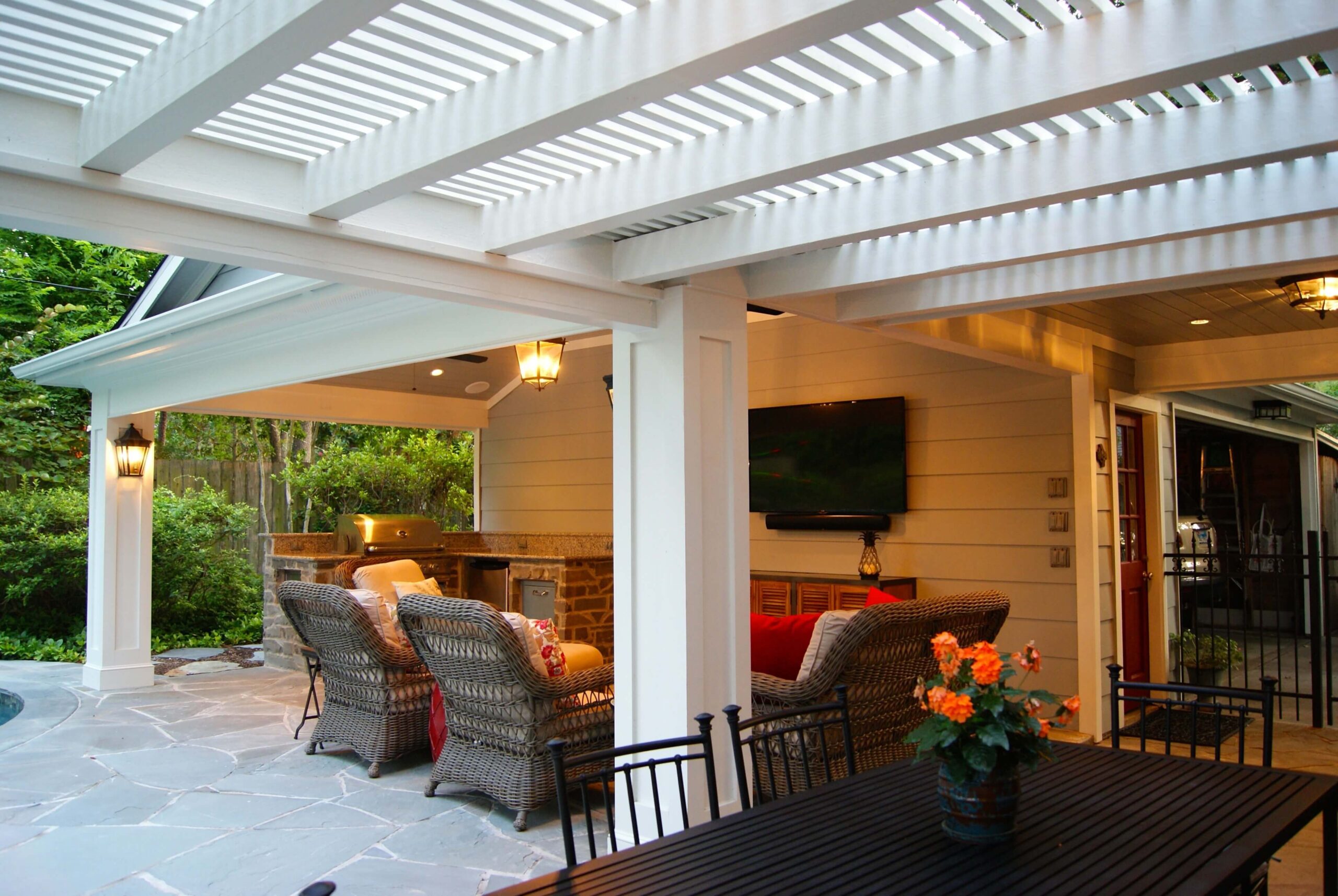
3. Can pergolas stand up to high winds?
Pergolas can withstand moderate winds, but their ability to withstand high winds depends on various factors, such as the quality of construction, materials used, and anchoring methods. It’s advisable to consider local weather conditions and reinforce the pergola accordingly.
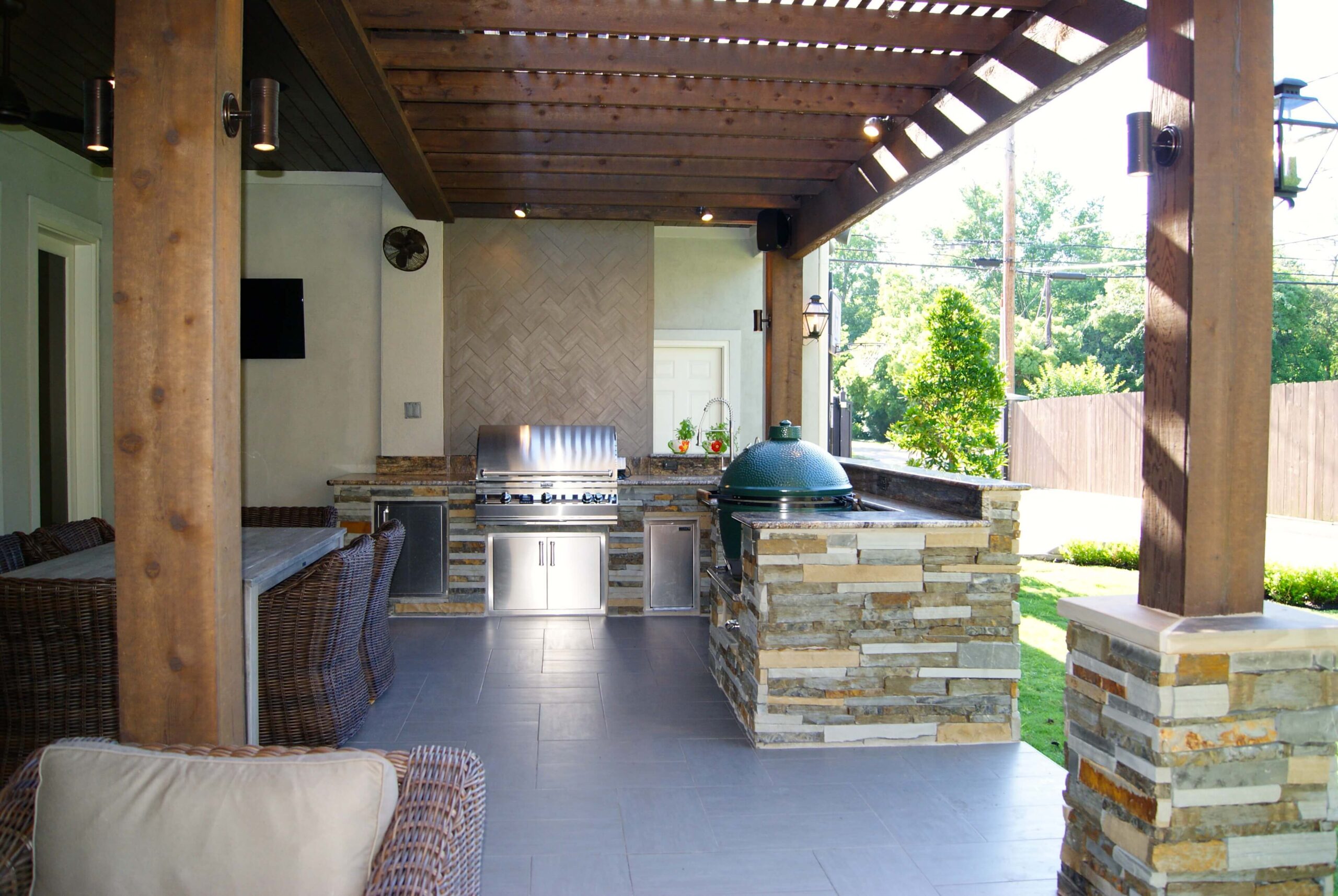
4. How much does an essential pergola cost?
The cost of a basic pergola can vary widely depending on factors like size, materials, and design complexity. While it is less expensive than adding a roof structure, the cost can increase when a durable plastic product is added to cover it. Maintenance should also be factored into the consideration of a pergola, as a stained wood product will need to be cleaned and restained routinely.
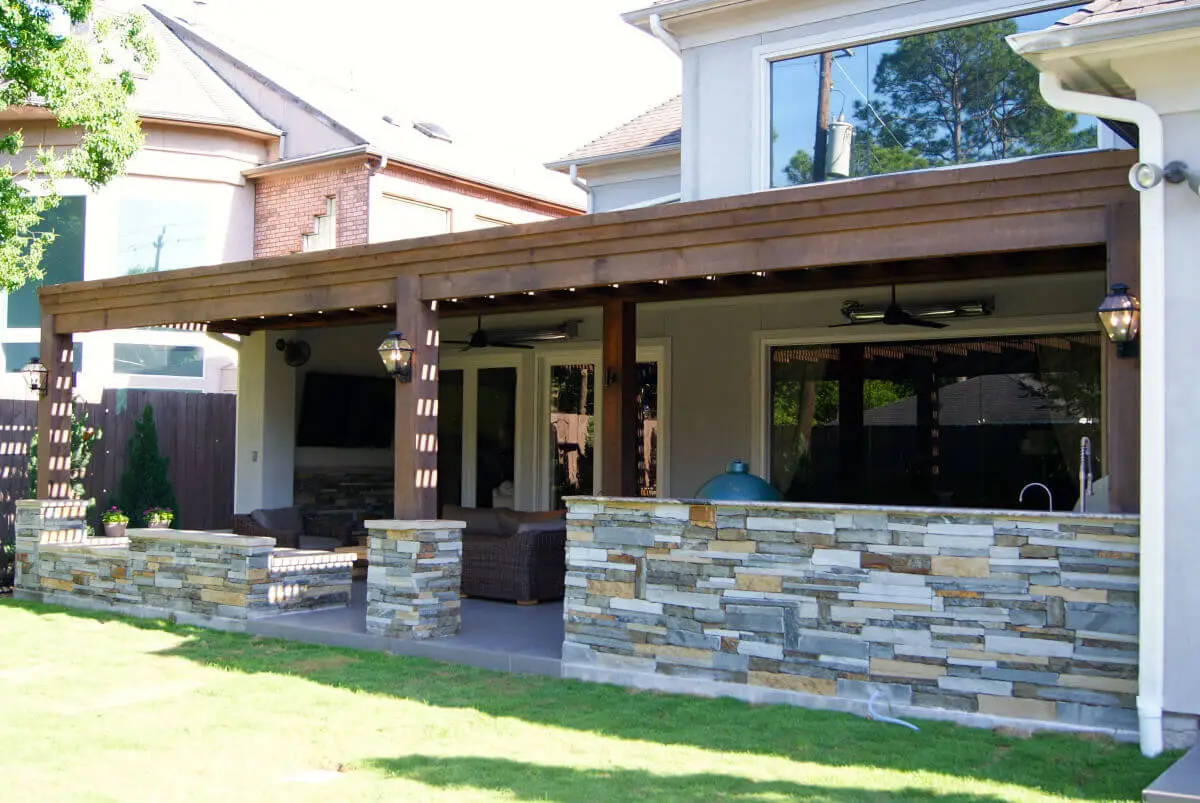
Also, remember that while a TCP-built patio cover with shingles will last the life of your home, a pergola, depending on maintenance, has a more limited lifespan.
Considering all those considerations, a simple stained cedar pergola with a ceiling fan/fixture will start at about $50/square foot. It can go up with a plastic cover, masonry, or electrical. This does not include concrete or a wide range of decorative flooring options.
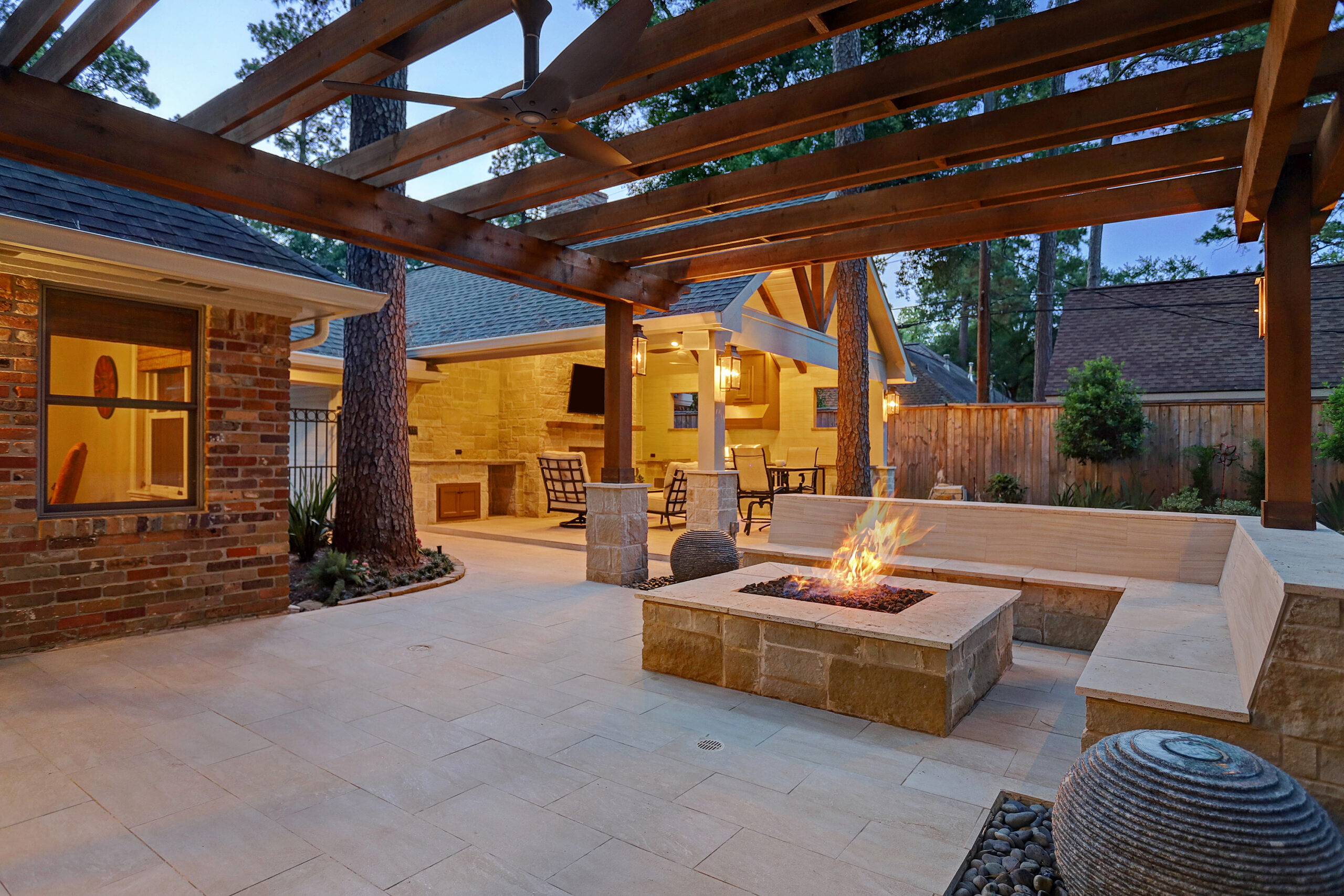
5. Should pergolas match the house?
In our opinion, yes! We love it when patio spaces feel like a natural extension of the existing home. But that doesn’t mean you have to use the same brick exterior. There are many ways to create a cohesive look that complements the house while incorporating your style, such as a brick or stone base on the columns and staining to match or complement the home.
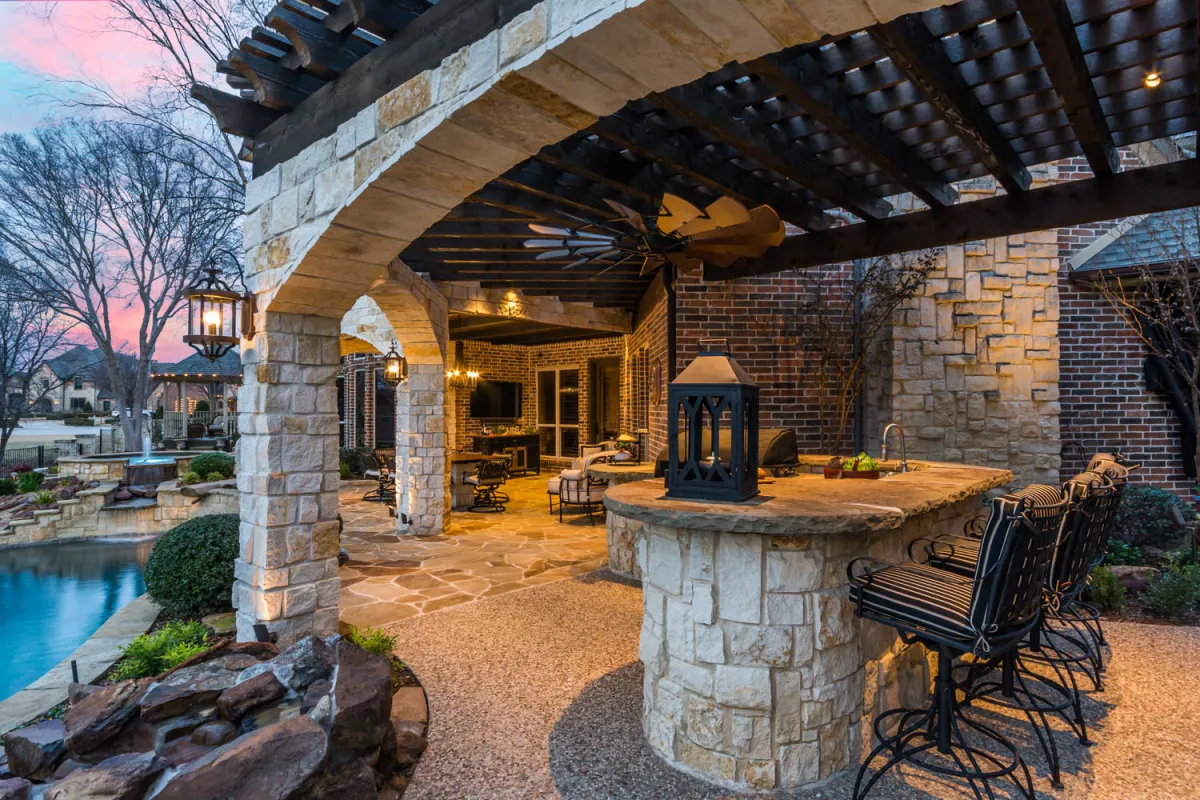
6. Where is the best place to put a pergola?
The best place to put a pergola depends on your needs and preferences. Common locations include the backyard, garden, patio, or poolside area. When choosing the placement, consider factors like sunlight exposure, privacy, and proximity to the house.
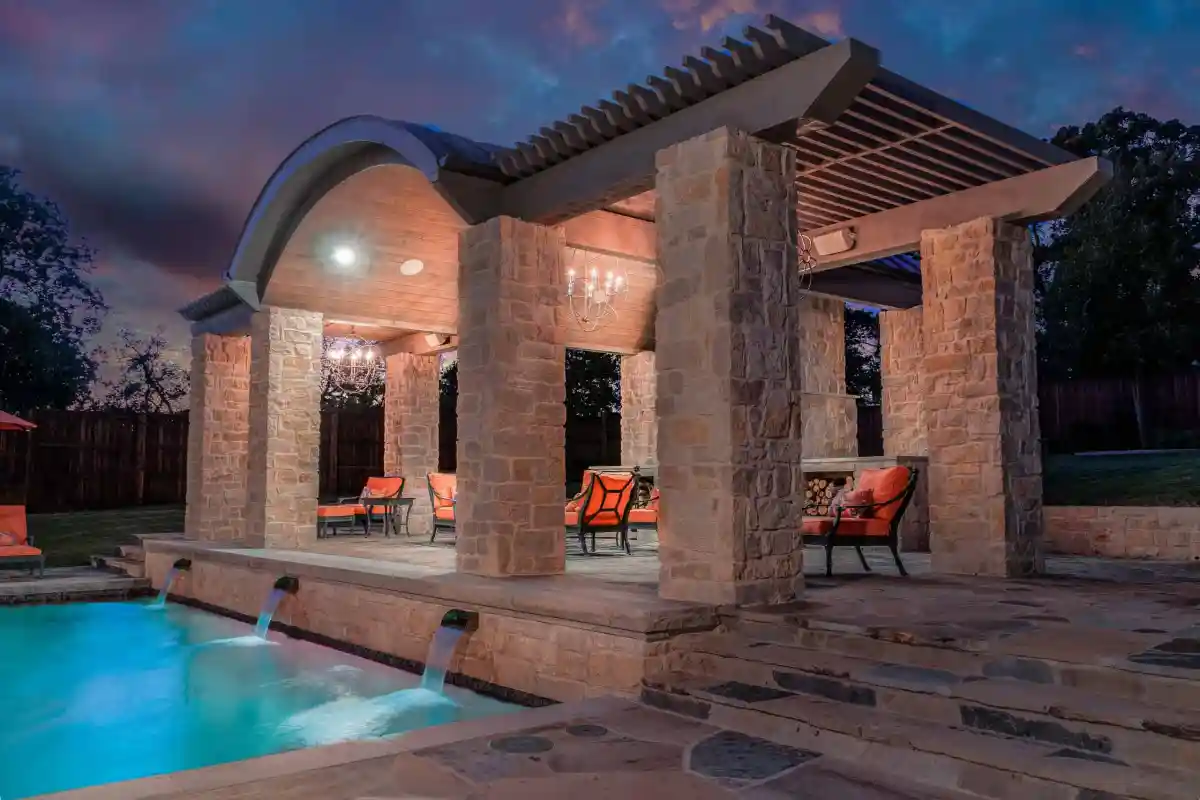
7. Are metal or wooden pergolas better?
Both metal and wooden pergolas have their advantages. Metal pergolas are durable, low-maintenance, and often have a sleek modern look, while wooden pergolas offer a natural aesthetic and can be customized to various styles and designs.
The newest product in the pergola category is a metal pergola with mechanical louvers that can be opened or closed, depending on weather conditions. These products have a contemporary look and unique options that can be added, including screens, sliding walls, heaters, sound systems, and lighting.
TCP is now a dealer for these beautiful Renson products.
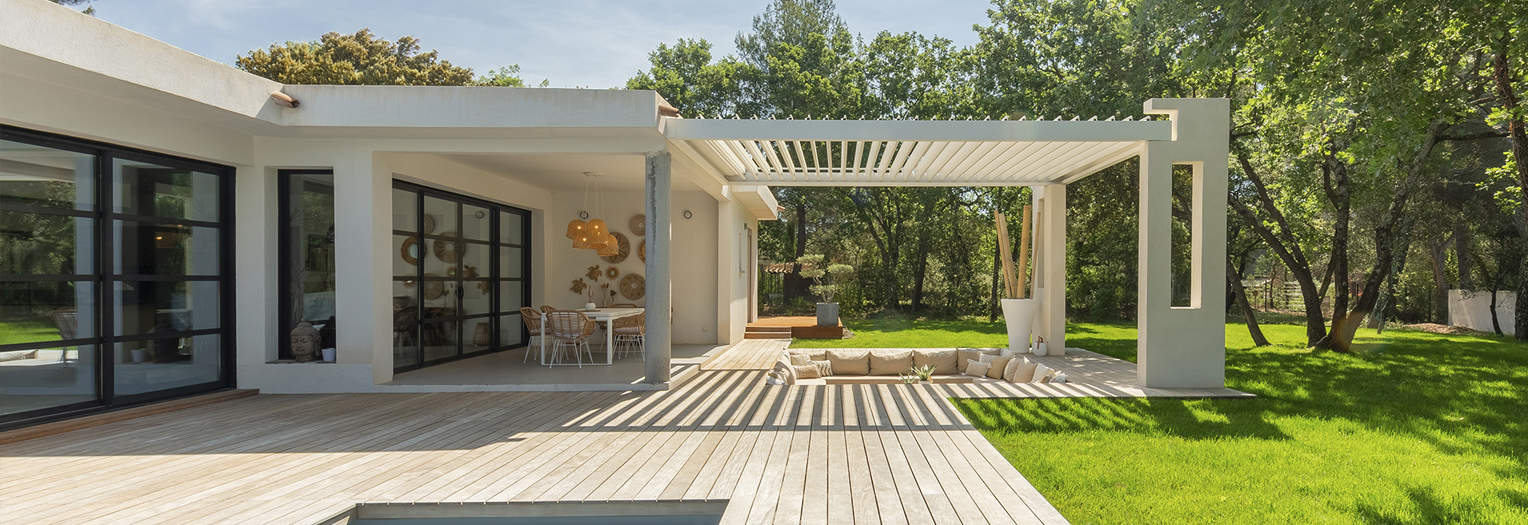
8. What is the best type of roof for a pergola?
The best type of roof for a pergola in Texas depends on factors like the desired level of shade and personal preference. Popular options include open-lattice roofs, durable plastic such as Lexan, fabric canopies, or retractable awnings that provide varying degrees of shade and protection from the elements.

9. Are pergolas hard to maintain?
Pergolas are generally low-maintenance structures. Daily maintenance includes regular cleaning, occasional repairs, and treating wooden pergolas to prevent weathering. With proper care, a pergola can remain beautiful and functional for years.
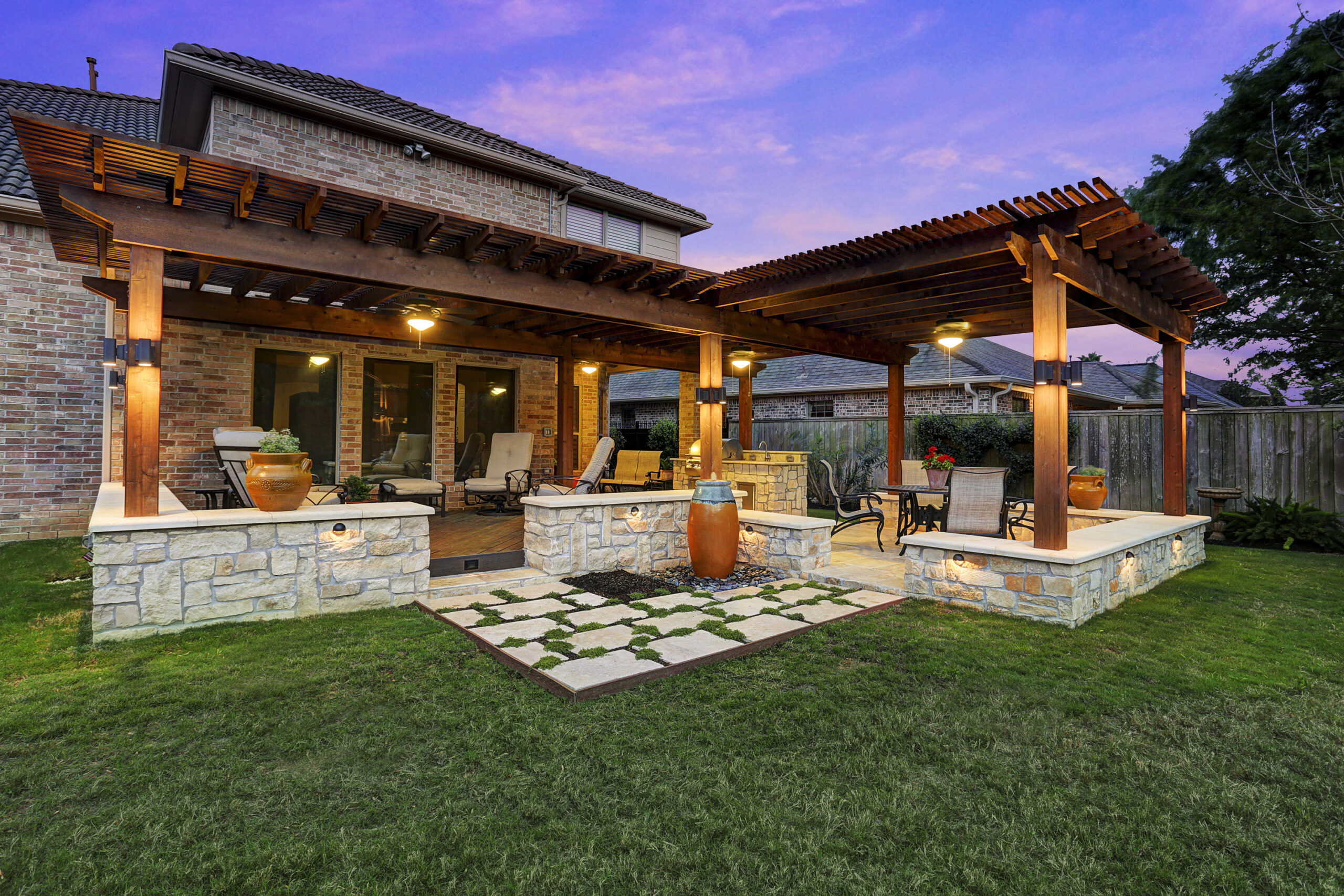
If there’s anything else you’d like to know about incorporating a custom pergola into your backyard, contact us for a free consultation so we can discuss what’s possible.
Get started on your backyard transformation by clicking here to book your free consultation today.